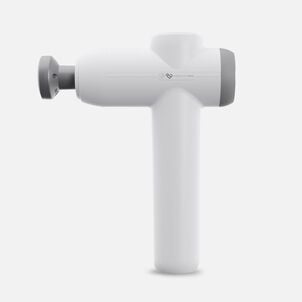Sleep training isn't just for babies

It's no secret to new parents – Whether you support the "cry it out" method, take a gentler approach, or fall somewhere in between, getting your baby into a good sleep cycle is one key to successful parenting.
Maybe your baby still gets up every two hours like clockwork and you haven't had a full night's sleep in months. Or perhaps your little bundle of joy sleeps through the night, but you're desperate to get them on a solid nap schedule so you can have a few hours a day to yourself to work, do laundry, or – I don't know – eat?
Sometimes, shushing and rocking can only get you so far. Sleep training your infant can be tough for new parents, but there are several FSA-eligible resources you can take advantage of to get some much-needed rest. For example, sleep training coaches are gaining popularity among new parents , but they can be pricey.
And babies aren't the only ones who can use a little help getting sleep. Approximately 30% of American adults suffer from sleep disruptions like insomnia or sleep apnea.
Of course, we're not doctors -- if you think you or your child has more serious sleep issues, see a doctor immediately. But many of us are parents, so for some anecdotal advice from our own experience, read on for how your FSA can help you and your baby get some much-needed rest.
For babies
We'll focus on baby's sleep help first, since we all know that if the tiny humans aren't getting any sleep, you certainly aren't, either. You may already know that an FSA can help offset the rising cost of raising a child. Things like regular visits to the pediatrician, over-the-counter medicines, even antibiotics and humidifiers for the inevitable first sickness are FSA-eligible.
You've tried it all. Rocking, shushing, white noise, lullabies, the works. Nothing seems to put your little babe to sleep. But did you know you can use your pre-tax dollars to help get your baby to sleep? From the Moms on Call method to Babywise, there are countless books and schools of thought when it comes to getting your baby to sleep.
But if the books don't do the trick, the next step may be to hire a sleep coach for your fussy babe. While this industry is relatively new – and unregulated – for many parents, it's become a necessity.
Eligibility requires a letter of medical necessity (LMN), but you'll want to check with your FSA administrator before going through the work of getting one from your doctor to be sure that's what they'll require and that they'll indeed allow for the expense under your FSA.
For parents
Even though you're exhausted, it still can be hard to turn your brain off and get some much-needed sleep once the baby is down for the night. Here's how to achieve the quality, restorative sleep you need as a new parent.
For the occasional bout of sleeplessness, you might consider sleep aids like Unisom, which are FSA-eligible. You could also invest these items to improve your sleep, or maybe a new pillow will do the trick (not FSA eligible).
If your sleeping issue is a bit more serious, sleep deprivation treatment can be an option. There are a few different types of sleep deprivation treatments – stimulus control therapy, which eliminates any outside factor that can prevent sleep; making lifestyle changes to help facilitate sleep; environment changes, such as installing blackout shades or wearing a sleep mask; even relaxation training. The good news? All are FSA-eligible.
Still can't drift off to dreamland? Your FSA covers acupuncture and even sleep studies to help you finally get the shut-eye you need.
And for all those first time parents out there who wake up like clockwork to check their baby's breathing? Perhaps it's time to invest in a baby movement monitor – FSA-eligible, of course.
















